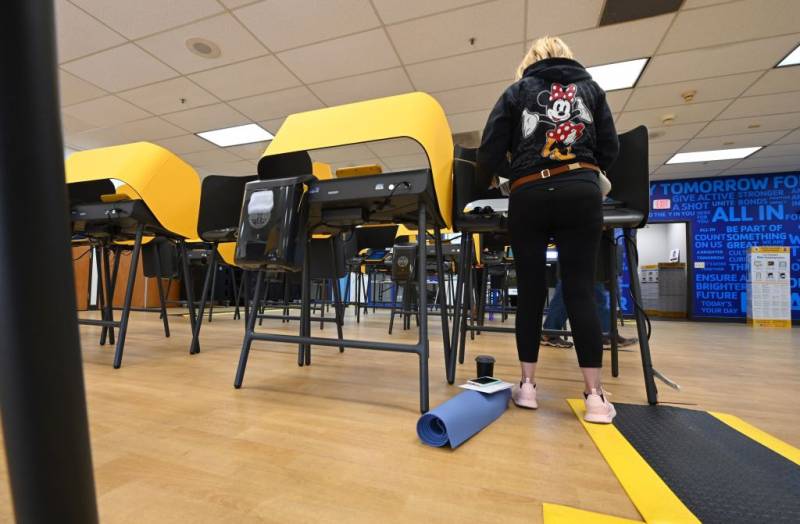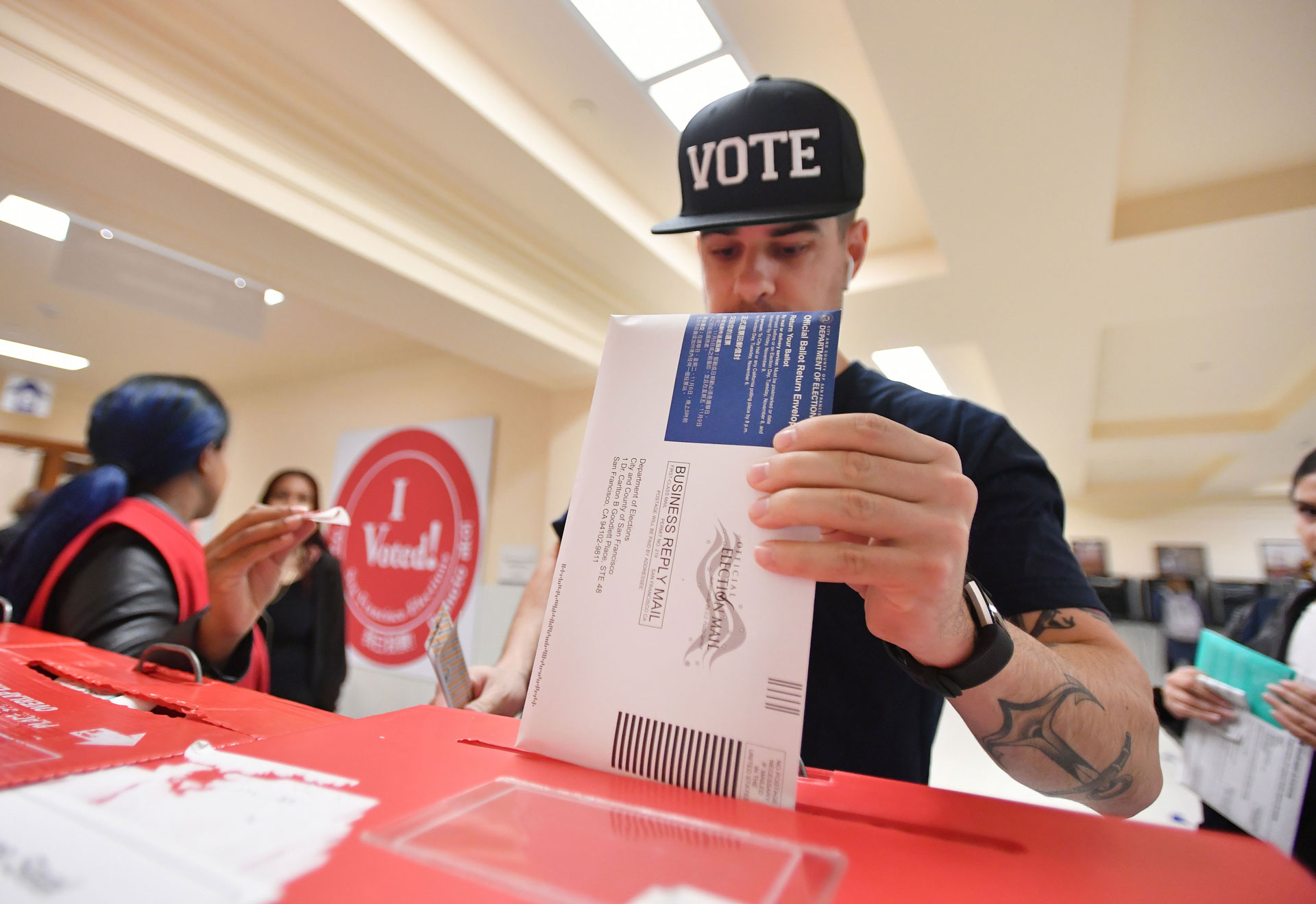No. Once you’ve voted, you cannot vote again. Under state law, it’s a crime to vote twice, and if you do, both ballots will be disqualified.
Can I change my vote if I filled out my ballot but haven’t turned it in yet?
Yes. To do so, you must go to a polling place, election center or county election office, tell an official there what happened, turn in your old ballot to be destroyed and request a new one.
Can I register to vote on Election Day?
It’s important to note, however, that your ballot will take a few days, or maybe even weeks, to be counted if you register on Election Day, because voting officials must verify your eligibility before they can count it.
If I’m not a registered Democrat, can I vote in Tuesday’s primary?
Yes — but at this late time, you must request a Democratic primary ballot at a polling location, county election office or vote center. If you were mailed a different ballot, bring it with you so you can exchange it for one with the Democratic presidential candidates.
What happens to the votes (and delegates) for the candidates who already dropped out?
If you already voted for Steyer, Buttigieg, Klobuchar or Andrew Yang — all candidates on the ballot who have since dropped out — they will still get your vote in California’s final tally, and will also still receive any delegates they might end up qualifying for. However, with their campaigns suspended, none of that really matters.
Now that four candidates on the ballot have dropped out, does that change the delegate math?
Nope. All candidates still need to clear 15% of the vote — in their districts and statewide — to qualify for any delegates. That threshold is simply based on the total voter turnout in any given congressional district or statewide, regardless of how many candidates are left standing.
If I haven’t mailed in my vote-by-mail ballot yet, what should I do?
You can drop it off at any voting center, polling location or county elections office. Or, you can mail it — as long as it’s postmarked by Tuesday, March 3 and arrives by Friday, it will still be counted.
How can I make sure my vote was counted?
Check with your county election office. Here’s a handy list to help with that.


